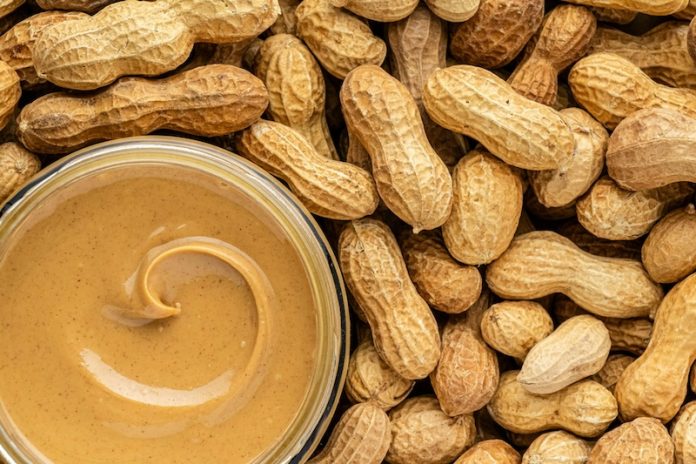
In the quest for diabetes-friendly foods, peanuts emerge as an unlikely hero. This humble legume, often overshadowed by flashier superfoods, packs a nutritional punch that could benefit those managing diabetes.
This review will crack open the shell of research to explore how peanuts might play a role in nutrition and glucose management for individuals with diabetes.
Diabetes is a condition characterized by high blood sugar levels, which over time can lead to serious health complications.
Managing blood sugar is a delicate balancing act that involves careful consideration of diet, among other lifestyle factors. Enter peanuts, a snack often associated with ball games and quick lunches, which may have a role in this balance.
Nutritionally, peanuts are rich in healthy fats, protein, and fiber, but low in carbohydrates, which makes them an appealing snack for blood sugar management.
The healthy fats in peanuts are primarily unsaturated fats, which can improve heart health by lowering levels of bad cholesterol—a big benefit since people with diabetes are at higher risk for heart disease.
The protein and fiber in peanuts can also help manage diabetes by providing a sense of fullness after eating, which can prevent overeating and help with weight control.
Weight management is crucial for individuals with type 2 diabetes, as excess weight can make it more difficult to control blood sugar levels.
But what does the research say about peanuts and blood sugar control? Several studies have looked into this question. One key finding is that the low glycemic index (GI) of peanuts means they have a minimal impact on blood sugar levels.
Foods with a low GI are digested and absorbed more slowly, leading to a gradual rise in blood sugar and insulin levels, rather than a spike.
This slow release of energy is beneficial for blood sugar control, making peanuts a smart choice for people with diabetes.
Furthermore, research suggests that regular consumption of nuts, including peanuts, may improve insulin sensitivity.
Insulin sensitivity refers to how effectively the body uses insulin to lower blood sugar levels, and improving it can help manage diabetes more effectively.
Despite these benefits, it’s important to consume peanuts in moderation. While they are nutritious, peanuts are also calorie-dense, and overeating them can lead to weight gain.
Opting for unsalted, raw, or dry-roasted peanuts is also a healthier choice to avoid the added sodium and fats that often come with heavily processed varieties.
In conclusion, peanuts could be a valuable addition to the diet of someone managing diabetes, thanks to their nutritional profile and the positive effects on blood sugar and satiety they offer.
However, as with any dietary change, it’s crucial for individuals with diabetes to consult with healthcare providers or dietitians to tailor their eating plans to their specific health needs.
Peanuts, when eaten as part of a balanced diet, can indeed be a nutty solution for better blood sugar control, illustrating that sometimes, great health benefits come in small packages.
If you care about diabetes, please read studies about Vitamin D and type 2 diabetes, and what you need to know about avocado and type 2 diabetes.
For more information about diabetes, please see recent studies about how to eat to prevent type 2 diabetes, and 5 vitamins that may prevent complication in diabetes.
Copyright © 2024 Knowridge Science Report. All rights reserved.



